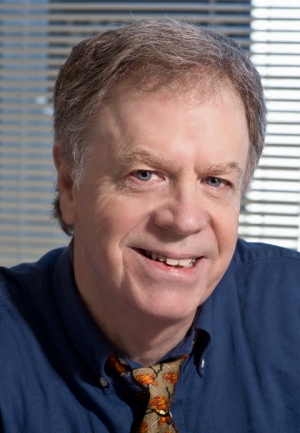
By
Founders Professor in Theology James Keenan, SJ, has a wealth of scholarly interests and activities in areas such as fundamental moral theology, theological ethics, HIV/AIDS, and Church leadership ethics. A former Gasson Professor who joined the Boston College faculty in 2005, Fr. Keenan has served on the Church in the 21st Century Center task force on the Catholic Intellectual Tradition. Recently, Sean Smith of the Chronicle talked with Fr. Keenan about his newest task: directing the BC Presidential Scholars Program.
You're now in your second year as director of the Presidential Scholars Program. What are the most important things you've learned about the program that you didn't know before?
What I know now is how important it is to have an assistant who anticipates, with professional sensitivity, the ongoing agenda that we have. My assistant, Jennie Thomas, is sensational. She keeps our activities well on track.
I've also been surprised by the amount of time I need to dedicate to the program. My predecessor Dr. Dennis Sardella told me about this, but between meetings, letters of reference, trips, etc. I spend about 25 hours a week as director.
The most exciting dimension of my work is the way faculty, particularly senior faculty, have accepted any number of invitations that I have extended for them to mentor or advise a student. I would say that in the past 18 months, we have been supported by about another 40 faculty who were not previously involved in the program.
We know that Presidential Scholars are among the best students in the country academically, and they demonstrate the potential for leadership and service. But how do you experience them on a day-in, week-out basis? What kinds of everyday, personal qualities do you find these young people share?
I think the Presidential Scholars know how much energy and wisdom I draw from them. I find the more I ask of them, the more they give. They are a very enjoyable group of people, with vision, energy, and drive.
I think they are remarkably normal. Today’s undergraduates have a wild amount of expectations on them, and the Presidential Scholars certainly do. But, for the most part, they handle those expectations with a fair amount of maturity, solidarity, and humor.
They are also very innovative. They are involved in most activities on campus and they are not afraid to step forward with new ideas and dreams. It’s quite exciting.
I think BC is the better for having them. I know too that faculty are very happy with them. Anywhere I go on campus, one faculty member after another tells me about one or another Scholar.
Similarly, through Development, we have reached out to Board of Trustees and Wall Street Council Members like John Murphy, Kathleen Corbet, T. J. Maloney, Mario Gabelli, Geoff Boisi and Robert Devlin who have long supported the program. They are getting to know the Presidential Scholars first hand now and I think that's quite good.
Are there some new features to the program being implemented or considered in the coming months?
There's quite a bit new. This year we hosted the first alumni reunion, which was very successful.
I took the 2014 (sophomore) class with me to Managua for a Development Immersion program during January recess. It was just a great time for them and me. This will be an annual program.
We also have launched the Sophomore International Summer that requires them to study or work eight weeks in another linguistic culture. As a result the Scholars are a lot more global. Last year, Scholars studied in Argentina, Ecuador, Nicaragua, Jordan, Russia, Italy, El Salvador, Turkey, Mexico, Spain, France, Germany, Belize, Austria, Portugal, Morocco, Ireland, Canada, China, Japan, Philippines, South Africa, Nepal and Australia.
Do you feel that directing the Presidential Scholars Program has enhanced your own academic and professional life?
Yes. As a scholar I often wonder, does anyone read what I write or accept the advice that I offer? I realize that I need to ask whether I effectively communicate. I think I’ve learned that lesson from this generation of intellectuals. A great idea means nothing if it is not effectively communicated.



